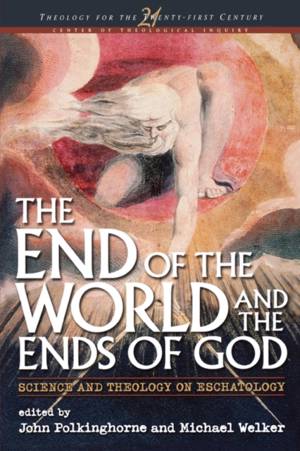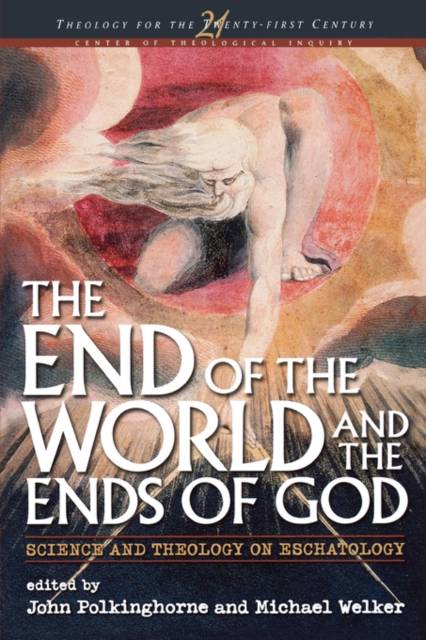
- Afhalen na 1 uur in een winkel met voorraad
- Gratis thuislevering in België vanaf € 30
- Ruim aanbod met 7 miljoen producten
- Afhalen na 1 uur in een winkel met voorraad
- Gratis thuislevering in België vanaf € 30
- Ruim aanbod met 7 miljoen producten
Zoeken
End of the World and the Ends of God
Science and Theology on Eschatology
€ 135,95
+ 271 punten
Omschrijving
The dialogue between science and theology has grown to mammoth proportions over the past decade. These two disciplines search continually to discover their common ground. Each discipline is anxious to warrant its own truth claims concerning the nature of reality and the nature of God. In order to be fruitful, such dialogue, argue the authors of this collection, should focus on one subject. In this volume, 16 scientists and theologians contend that eschatology provides a common concern for both theology and the sciences. Eschatology, they claim, will help clarify and cultivate the differences between truth claims in both fields. Moreover, a focus on eschatology offers an opportunity to examine the reasons people can be hopeful and optimistic even in the face of physical death and the finitude of the universe. Included in this provocative collection are essays on eschatology and the natural sciences, eschatology in cultural sciences and ethics, eschatology in the biblical tradition, and eschatology and theology. John Polkinghorne is the president of Queens College, Cambridge and the author of Reason and Reality (Trinity) and Serious Talk: Science and Religion in Dialogue (Trinity). Michael Welker teaches at the University of Heidelberg. Contributors to the volume include William R. Stoeger, S.J., Steward Observatory, The University of Arizona; Detlef Linke, Bonn University; Fraser Watts, Queens College, Cambridge; Larry Bouchard, University of Virginia; William Schweiker, University of Chicago; Janet Soskice, Jesus College, Cambridge; Christoph Schwobel, Heidelberg; Walter Brueggemann, Columbia Theological Seminary; Patrick D. Miller, Princeton Theological Seminary; Donald H. Juel, Princeton Theological Seminary; Hans Weder, University of Zurich; Gerhard Sauter, University of Bonn, Germany; Kathryn Tanner, University of Chicago; Jurgen Moltmann, University of Tubingen; and Miroslav Volf, Yale University. For: Seminarians; clergy; graduate students; general audience>
Specificaties
Betrokkenen
- Uitgeverij:
Inhoud
- Aantal bladzijden:
- 320
- Taal:
- Engels
- Reeks:
Eigenschappen
- Productcode (EAN):
- 9781563383120
- Verschijningsdatum:
- 1/02/2000
- Uitvoering:
- Paperback
- Formaat:
- Trade paperback (VS)
- Afmetingen:
- 153 mm x 228 mm
- Gewicht:
- 508 g

Alleen bij Standaard Boekhandel
+ 271 punten op je klantenkaart van Standaard Boekhandel
Beoordelingen
We publiceren alleen reviews die voldoen aan de voorwaarden voor reviews. Bekijk onze voorwaarden voor reviews.







